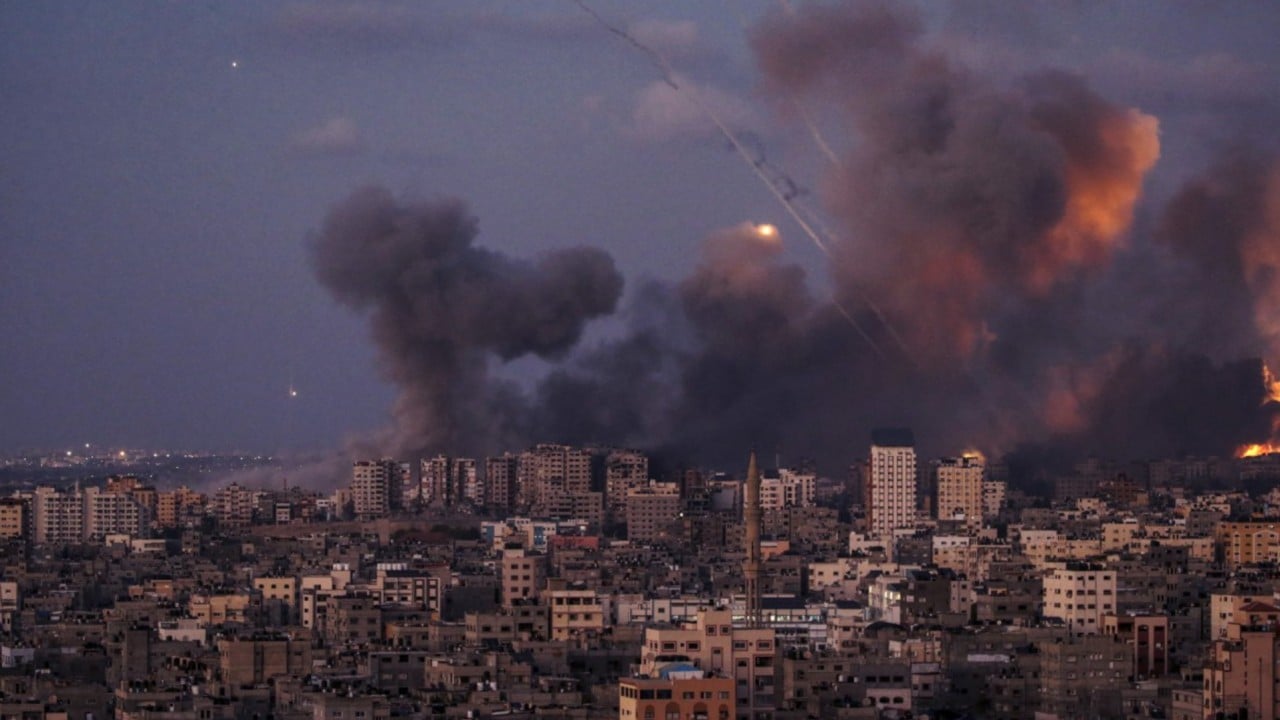
Will Yemen’s Houthis derail China’s plans to be global diplomatic power broker?
- Greater uncertainty on maritime routes could heighten China’s concerns, especially since the Middle East meets over 40 per cent of China’s energy needs
- Escalating provocations by the Iran-backed Houthis threaten trade and energy security, and also weigh on China’s credibility as a mediator in the region and globally

Though there are proxy connections between Iran and various groups like Hamas in Gaza, Hezbollah in Lebanon, Shia popular mobilisation units in Iraq, and the Houthis in Yemen, the degree of ideological alignment and willingness to strictly follow direct orders from Tehran vary among these militant organisations.
However, a question remains regarding how the Houthis tracked an India-bound vessel while its geolocation tracker was off. Typically, ships turn off the function to avoid detection in pirate-infested or conflict-ridden waters. Despite this, the Houthis located the ship and deployed a Soviet-era military helicopter with a commando on board, forcing the vessel to dock near the Yemeni port of Al-Hudayah. An Iranian vessel with advanced tracking capabilities was allegedly spotted in the area.
Wang Yi warns of ‘devouring’ Mideast violence as China convenes UN meeting
The recent shift from Yemen’s Houthis, moving beyond rhetoric to launching long-distance drone and missile strikes on October 31 against Israel, underscores a broader regional escalation that will not end with vessels hijacking. This expansion is not solely tied to the Houthis’ or Hezbollah’s will to open a second front in Lebanon – it is a larger, interconnected dynamic at play.
Since the onset of the Yemeni conflict in 2015, the Houthi forces’ use of weaponised drones to target commercial vessels along the Bab al Mandeb Strait – a crucial passage linking the Red Sea and the Gulf of Aden – hangs like a sword of Damocles over global trade.
This persistent threat poses a significant risk to one of the busiest maritime routes worldwide. Connecting the Mediterranean Sea with the Indian Ocean, the strait witnesses a daily flow of millions of barrels of oil that account for 9 per cent of total seaborne petroleum.
Today, the Houthis allegedly have hundreds of old Soviet naval mines and a small supply of Chinese rocket-propelled mines that can move on their own without needing buoyancy to reach their target.
The turmoil in the Middle East not only triggers soaring oil prices but also spikes insurance premiums and additional costs to install jammers for electromagnetic warfare and active anti-drone systems on commercial vessels. Chinese state-owned enterprises must now navigate these increased expenses amid economic downturns and a weaker yuan.
During the Yemeni civil war, the Houthis unconventionally used armed unmanned aerial vehicles to counter the Saudi-UAE coalition. Notably, the Houthis’ drone warfare evolved significantly in 2021, targeting oil tankers and pipelines using suicide drones, in a heightened level of sophistication.

For example, during a 2022 joint drone and missile attack on a Saudi oil refinery by the Houthis, Brent spot prices rose by 5 per cent. Following the hijacking of Galaxy Leader, other vessels have been attacked, including a US destroyer that was targeted by ballistic missiles in the Gulf of Aden while providing support to an Israeli vessel in distress.
While the Middle East remains crucial for China’s energy security and trade, the escalating provocations from the Houthis pose a concern not only from a trade and energy security perspective but also affecting China’s credibility as a mediator.
Besides Beijing’s recently brokered détente between Saudi Arabia and Iran, it is uncertain if Tehran will employ plausible deniability within its proxy ties to the Axis of Resistance, when Beijing invokes the favours gained from years of providing economic and diplomatic support to the Islamic Republic.
While Qatar and Egypt have successfully mediated a truce and hostage exchange between Israel and Hamas, the impact of the Houthis’ involvement in the Gaza situation is adding another layer of complexity to Beijing’s aspiring role as a mediator in the region.
Alessandro Arduino is an affiliate lecturer at the Lau China Institute and King’s College London. He is the author of Money for Mayhem: Mercenaries, Private Military Companies, Drones, and the Future of War.


